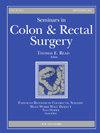Pearls for counseling older adults on the indications for stopping colon cancer screening
IF 0.5
Q4 SURGERY
引用次数: 0
Abstract
Colorectal cancer remains a leading cause of mortality, making effective screening procedures like colonoscopy essential in reducing associated risks. The cessation of colorectal cancer screening in older adults presents complex challenges, particularly as guidelines recommend screening initiation at age 45 and emphasize individualized decision-making for older populations. Key considerations include balancing procedural risks, cancer risk, overall health prognosis, and patient preferences. The risks associated with colonoscopy are especially pertinent for older patients with comorbidities, necessitating the use of prognostic tools like ePrognosis and the Charlson Comorbidity Index to inform screening decisions. High-risk individuals may experience increased anxiety about cancer, complicating the decision-making process, as many have historically relied on regular surveillance. Perspectives from both physicians and patients reveal significant uncertainty regarding screening cessation, highlighting the importance of patient involvement in these discussions. Effective communication strategies are crucial, advocating for recommendations that align with patients' broader health goals rather than focusing solely on age-related actuarial data. Ultimately, navigating the intricacies of colorectal cancer screening cessation in older adults requires a patient-centered approach that minimizes risks while respecting individual values and health goals.
向老年人提供有关停止结肠癌筛查指征的指导原则
结肠直肠癌仍然是导致死亡的主要原因,因此结肠镜检查等有效的筛查程序对于降低相关风险至关重要。停止对老年人进行结直肠癌筛查是一项复杂的挑战,尤其是指南建议在 45 岁开始筛查,并强调老年人群的个性化决策。主要考虑因素包括平衡手术风险、癌症风险、整体健康预后和患者偏好。结肠镜检查的相关风险对于有合并症的老年患者尤为重要,因此有必要使用预后工具(如 ePrognosis 和 Charlson 合并症指数)为筛查决策提供依据。高危人群对癌症的焦虑可能会增加,从而使决策过程复杂化,因为许多人历来依赖于定期监测。从医生和患者的角度来看,他们对停止筛查都有很大的不确定性,这凸显了患者参与这些讨论的重要性。有效的沟通策略至关重要,应倡导与患者更广泛的健康目标相一致的建议,而不是仅仅关注与年龄相关的精算数据。最终,要驾驭老年人停止大肠癌筛查的复杂性,需要采取以患者为中心的方法,在尊重个人价值观和健康目标的同时最大限度地降低风险。
本文章由计算机程序翻译,如有差异,请以英文原文为准。
求助全文
约1分钟内获得全文
求助全文
来源期刊

Seminars in Colon and Rectal Surgery
SURGERY-
CiteScore
0.60
自引率
0.00%
发文量
43
期刊介绍:
Seminars in Colon and Rectal Surgery offers a comprehensive and coordinated review of a single, timely topic related to the diagnosis and treatment of proctologic diseases. Each issue is an organized compendium of practical information that serves as a lasting reference for colorectal surgeons, general surgeons, surgeons in training and their colleagues in medicine with an interest in colorectal disorders.
 求助内容:
求助内容: 应助结果提醒方式:
应助结果提醒方式:


